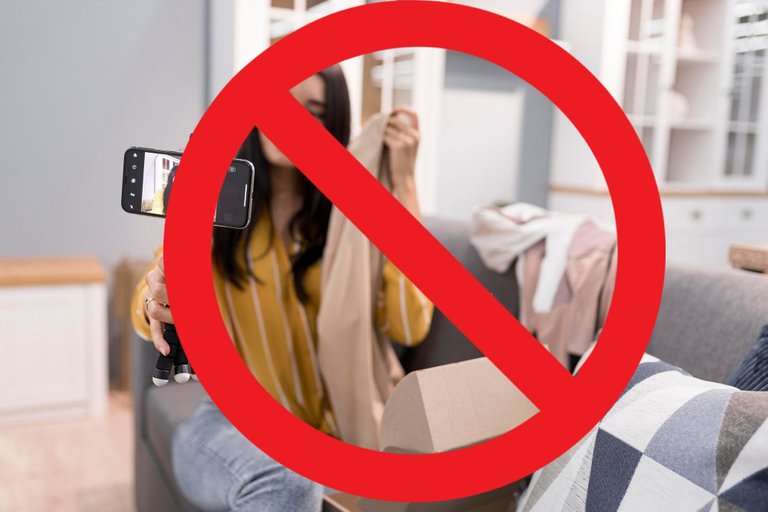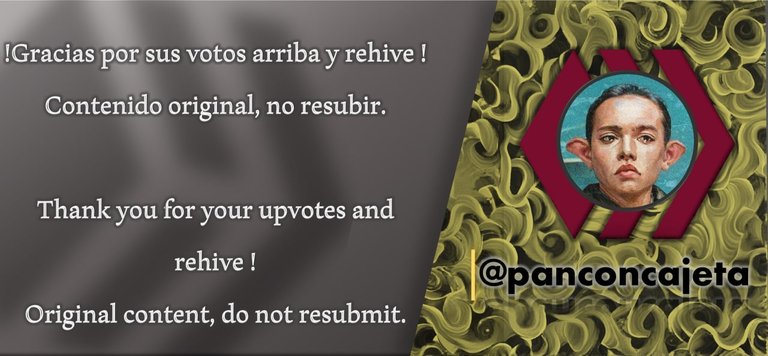¿Por qué la gente odia a los influencers tradicionales? // Why do people hate traditional influencers?

Foto de creador de contenido creado por freepik - www.freepik.es
Hay muchas personas en el mundo que comparten el mismo sentimiento de desagrado hacia los influencers tradicionales. Se les critica por muchas razones, desde ser "egoístas" hasta no aportar nada de valor al mundo. La realidad es que las razones son muy variadas por las que la gente los odia.
Las personas comunes sentimos que los influencers tradicionales son demasiado falsos. A menudo se les acusa de ser solo una cara bonita y no tener nada más que ofrecer. La gente dice que se hacen pasar por algo que no son y que solo están interesados en el dinero y en la fama. También se les critica porque a menudo venden productos o servicios de mala calidad o incluso engañosos además de realizar concursos y giveaways falsos donde solo ganan sus allegados.
Los críticos también afirman que los influencers tradicionales no aportan nada de valor al mundo. Dicen que no hacen nada para ayudar a los demás y que solo se preocupan por ellos mismos. Muchas personas ven a los influencers tradicionales como egocéntricos y superficiales.
Otra gran crítica hacia los influencers tradicionales es que son responsables de fomentar la competencia desenfrenada entre las personas. A menudo se les acusa de promover una cultura del "todo vale" en la que todo se trata de lograr el éxito y tener más dinero y seguidores. Esto puede llevar a la gente a hacer cosas perjudiciales para ellos mismos o incluso ilegales, solo para tratar de imitar el éxito de los demás.
Ejemplo de actos ilegales cometidos por influencers son variados y abarcarlos todos seria casi imposible, pero aquí les traigo los casos más sonados:
En primer lugar tenemos al famosísimo Logan Paul quien en 2018 se grabó en un famoso bosque japonés conocido por ser el lugar e preferencia para cometer suicidios. El youtuber quien estaba acompañado de varios amigos estaban grabando un paseo por el bosque Aokigahara cuando de repente se encontraron con un cadáver de una persona colgada. Esto causó una gran polémica en internet y provocó la ruptura de parte de YouTube con el vlogger.
En segundo lugar tenemos el caso del youtuber español Ren (que ya antes era conocido por maltratar a sus gatos en video) y quien en 2017 dio galletas rellenas con pasta dental a una persona sin hogar. Esto le valió 15 meses de prisión y una multa de $22 mil dólares.
Por último tenemos un caso no tan conocido fuera de México. Hablo de la youtuber Yosstosp. Esta influencer había subido un video a la plataforma donde humillaba a una joven por un video donde había sido violada por varios adolescentes con una botella. La youtuber no solo la llamó prostituta y otra serie de adjetivos muy fuertes, si no que también mostró el video el cual era considerado pornografía infantil pues se grabó cuando la victima era menor de edad.
Con todo no es de extrañar el porque la gente odia a los influencers tradicionales, ya que la realidad es que no son buenos modelos a seguir. La gran mayoría de influencers fomentan el materialismo y el egoísmo, y alientan a la gente a perseguir objetivos superficiales en lugar de cosas más significativas y duraderas.
Ante este panorama lo único que podemos hacer para combatirlos es seguir a los verdaderos influencers. Me refiero a gente que realmente hace cosas en beneficio de la sociedad. Hay muchos científicos y artistas que suben contenido de altísima calidad pero Youtube prefiere darle visualización al contenido basura pues "es más rentable". Hay que hacer un cambio de paradigma y darle más visualización al contenido que puede generar un cambio e influenciar de manera positiva a la juventud.
Fuentes: https://www.bbc.com/mundo/noticias-42644423

There are many people in the world who share the same feeling of dislike towards traditional influencers. They are criticized for many reasons, from being "selfish" to not contributing anything of value to the world. The reality is that the reasons are varied as to why people hate them.
Ordinary people feel that traditional influencers are too fake. They are often accused of being just a pretty face and having nothing else to offer. People say they pretend to be something they are not and are only interested in money and fame. They are also criticized because they often sell poor quality or even misleading products or services in addition to running fake contests and giveaways where only their close ones win.
Critics also claim that traditional influencers contribute nothing of value to the world. They say they do nothing to help others and only care about themselves. Many people see traditional influencers as self-centered and shallow.
Another major criticism of traditional influencers is that they are responsible for fostering unbridled competition among people. They are often accused of promoting an "anything goes" culture where it's all about achieving success and having more money and followers. This can lead people to do things that are harmful to themselves or even illegal, just to try to imitate the success of others.
Examples of illegal acts committed by influencers are varied and it would be almost impossible to cover them all, but here I bring you the most famous cases:
First we have the very famous Logan Paul who in 2018 was recorded in a famous Japanese forest known for being the place and preference to commit suicide. The youtuber who was accompanied by several friends were recording a walk through the Aokigahara forest when suddenly they came across a corpse of a person hanging. This caused a great controversy on the Internet and caused YouTube to break up with the vlogger.
In second place we have the case of the Spanish youtuber Ren (who was already known before for mistreating his cats on video) and who in 2017 gave cookies filled with toothpaste to a homeless person. This earned him 15 months in prison and a fine of $22 thousand dollars.
Finally we have a case not so well known outside of Mexico. This influencer had uploaded a video to the platform where she humiliated a young girl for a video where she had been raped by several teenagers with a bottle. The youtuber not only called her a prostitute and another series of very strong adjectives, but also showed the video which was considered child pornography because it was recorded when the victim was a minor.
It is no wonder why people hate traditional influencers, since the reality is that they are not good role models. The vast majority of influencers encourage materialism and selfishness, and encourage people to pursue superficial goals instead of more meaningful and lasting things.
Against this backdrop the only thing we can do to combat them is to follow real influencers. I mean people who actually do things for the benefit of society. There are many scientists and artists who upload content of the highest quality but Youtube prefers to give visualization to junk content because "it is more profitable". We need to make a paradigm shift and give more visualization to content that can generate a change and positively influence youth.
Sources: https://www.bbc.com/mundo/noticias-42644423
Translated with www.DeepL.com/Translator (free version)

Imagen hecha por @fclore22
Yo tambien odio a los youtuber tradicionales 😈🤭.
Yay! 🤗
Your content has been boosted with Ecency Points, by @panconcajeta.
Use Ecency daily to boost your growth on platform!
Support Ecency
Vote for new Proposal
Delegate HP and earn more
no pero es que esos dos se pasaron😯